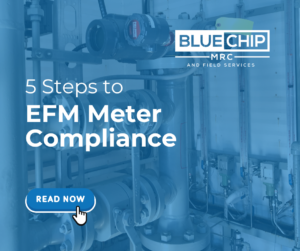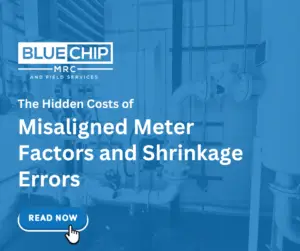Successful Completion of DEOS Reporting in Under 10 Days, Avoiding Costly Non-Compliance Penalties (Directive 039)

Case Study
Successful, timely completion of DEOS reporting ensured compliance and demonstrated the importance of thorough planning and leveraging relationships in overcoming regulatory hurdles. This achievement helped avoid potential financial penalties associated with non-compliance.
Client: Junior oil and gas firm in Western Canada
We are pleased to deliver this case study on behalf of Blue Chip’s findings:
Overview
A junior oil and gas firm received a notice from the Alberta Energy Regulator (AER) indicating that the 2023 DEOS (Directive 39) reporting had not been completed, putting them at risk of a Non-Compliance Notification (NNC). The DEOS reporting needed to be completed for all properties, within less than 10 days. This case study delves into the importance of successful and timely completion of Directive 039 reporting requirements.
Challenges
The situation presented several challenges:
- Short Timeline: The completion deadline was tight, requiring rapid action.
- Unfamiliarity with Properties: Limited knowledge about the properties added complexity.
- Data Uncertainty: Valid extended analysis data was uncertain.
- Property Sale: One property had been sold, complicating data retrieval.
- Operational Status Changes: One dehydrator was no longer operating and required a shut-in status update in One Stop.
- Data Retrieval Difficulties: Obtaining the necessary data from the sold facility was challenging, requiring analysis from 2023 and operational parameters for the reporting month.
- Operational Data Needs: Accurate operational data and analysis for the remaining dehydrators were required.
- Vendor Changes: Analysis vendors had switched from Bureau Veritas to Element.
- Contact Changes: The main contact for the company had changed.
Solution
To address these challenges, a strategic approach was implemented:
- Initial Discussions: The first step involved discussions with main contact from operations to understand the status of all properties and identify the right contacts for data collection.
- Data Gathering: Main contact provided the required data gathering forms and most of the 2023 analysis data. Coordination with Element ensured they could complete the Gri-Calc software work within the tight timeline.
- AER Coordination: Contacted AER to explain the situation and requested an extension, leveraging past positive working relationships.
- Analysis Completion: Element completed the necessary calculations swiftly, even releasing data sheets ahead of invoice payment.
- One Stop Submissions: Completed the One Stop submissions
Outcome
Conclusion
This case study underscores several key insights for achieving regulatory compliance under challenging conditions. Operations proved to be the most reliable source of field information, providing crucial data for the DEOS reporting. Direct communication with AER representatives facilitated a smoother process, demonstrating the value of personal interactions in regulatory matters. Additionally, incorporating this data service into other emissions work can offer significant benefits, streamlining the overall compliance process. Finally, evaluating a fixed rate for each DEOS entry may offer cost-effective solutions for clients, depending on the required level of service. These strategies collectively highlight the importance of thorough planning, effective communication, and strategic cost management in successfully navigating regulatory challenges.
At Blue Chip MRC and Green Chip ENV, our team of measurement and regulatory reporting specialists are dedicated to supporting your needs. By leveraging our expertise, you too can avoid non compliance risks, unlock significant savings and achieve regulatory adherence effortlessly! To discuss your project requirements, email us today info@bluechipmrc.com
To get started call 825-975-8574 now
The oil and gas industry is embracing a wave of digital transformation. Among the many innovations making an impact, Virtual Flow Meters (VFMs) stand out as a game-changer. By leveraging advanced
5 Steps to EFM Meter Compliance A Simple Guide to Navigate Directive 017 Requirements Compliance with AER Directive 017 can feel overwhelming, but with a clear plan, it’s entirely manageable.
In the oil and gas industry, precise measurement is not just a technical requirement—it’s a business imperative. Misaligned meter factors (MFs) and errors in shrinkage factor (SF) application can



